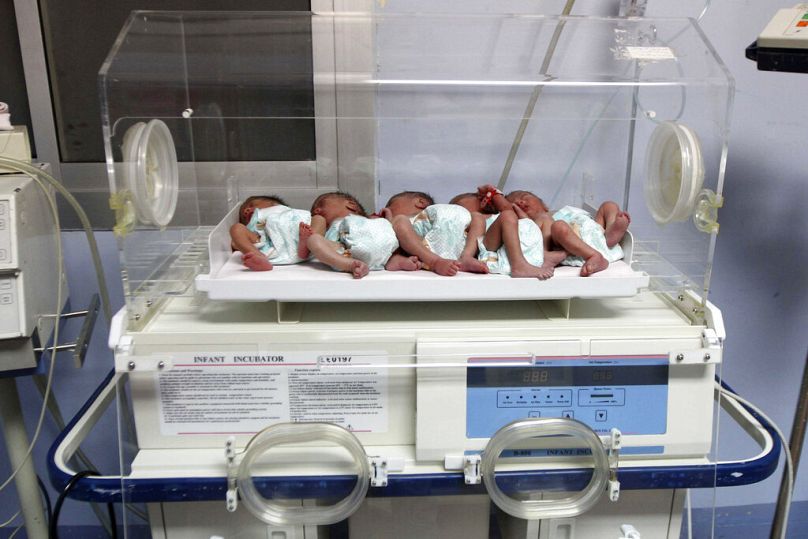Babies who die before birth - but had a gestation period of more than six months - must be registered and can have a name in the Spanish civil registry. Feminists say it's a frontal attack on women's right to abortion.
In the 31st week of her pregnancy, the heart of Cora, the baby that Noelia Sánchez was carrying, stopped beating.
 ADVERTISEMENT
ADVERTISEMENT
 ADVERTISEMENT
ADVERTISEMENT
She was told it was a sudden intrauterine death, without ever knowing the real reason for it. After the news, the grief was very painful.
"It was very much silenced by those around me. They loved me, but they didn't understand. No one thought of Cora as my daughter, for them she was an abortion," Sánchez told Euronews.
"They told me I could not have her on the civil register because she was born without life and her name could not be registered”.
That is all set to change after a new law was passed, following demands from pregnancy loss associations.
From now on, babies who die before birth - but had a gestation period of more than six months - must be registered and can have a name in the civil register file. To this end, the country has created a new "stillbirth declaration" register.
Before the change, babies who died after the sixth month of pregnancy were registered in the so-called 'Abortion Creatures File', without the possibility of being named or both parents being identified.
"This is a great achievement for the families. I had to register my daughter as the female foetus of Noelia Sánchez, and it was very painful. She is not a foetus, she is my daughter. This measure has no legal effect, but it gives emotional peace," says Sánchez.
"One of the things that hurt me the most was that they didn't recognise me as a mother, when I felt like one. My daughter ended up in the bin. For them she was surgical waste, and that was horrible".
"The validation of the baby’s name and surname is also a validation of the mourning," she adds.
It was last February that, after years of struggle, the Congress of Deputies approved the Socialist Party's law change, with the votes of all the political groups except the extreme right-wing party Vox.
An 'outrageous’ step backwards
Several feminist organisations have also expressed concern that, while the new law is not directly in conflict with the current right to abortion, it is a first step towards recognising the historical demands of anti-abortion groups.
"This is the first step towards recognising the foetus as a person. It is a frontal attack on women's right to abortion, because today you can register it after six months of pregnancy, but tomorrow it could be only three months and the week after that it could be one week," Núria González, a lawyer specialising in human rights and bioethics, told Euronews.
"The law is very clear. A person is a baby who is born alive and comes out of the womb," she adds.
The change in the law does not contradict the current right to abortion, which allows it up to the 22nd week of pregnancy, as the amendment states that only six-month-old stillborn babies can be registered.
But for feminist collectives to give it an identity is to equate its death with that of a human being.
However, statistics show that one in four pregnancies does not result in a live birth, and families say they feel by giving a name to their children they are recognised.
"It is not a step backwards. With this law, nobody will force you to give a first name and surname, it is a free choice," says Sánchez.
"For me, the most important thing is that every family can be at peace. I think it is an aberration that we are denied a name for our child when we need that," she adds.
Feminist organisations, nonetheless, claim that giving a name does not help families to overcome their grief.
"What we need is psychological care and to ensure that these women have the right to have maternity leave just like the mother of a baby born alive, so that they can mourn in peace," says the lawyer.











